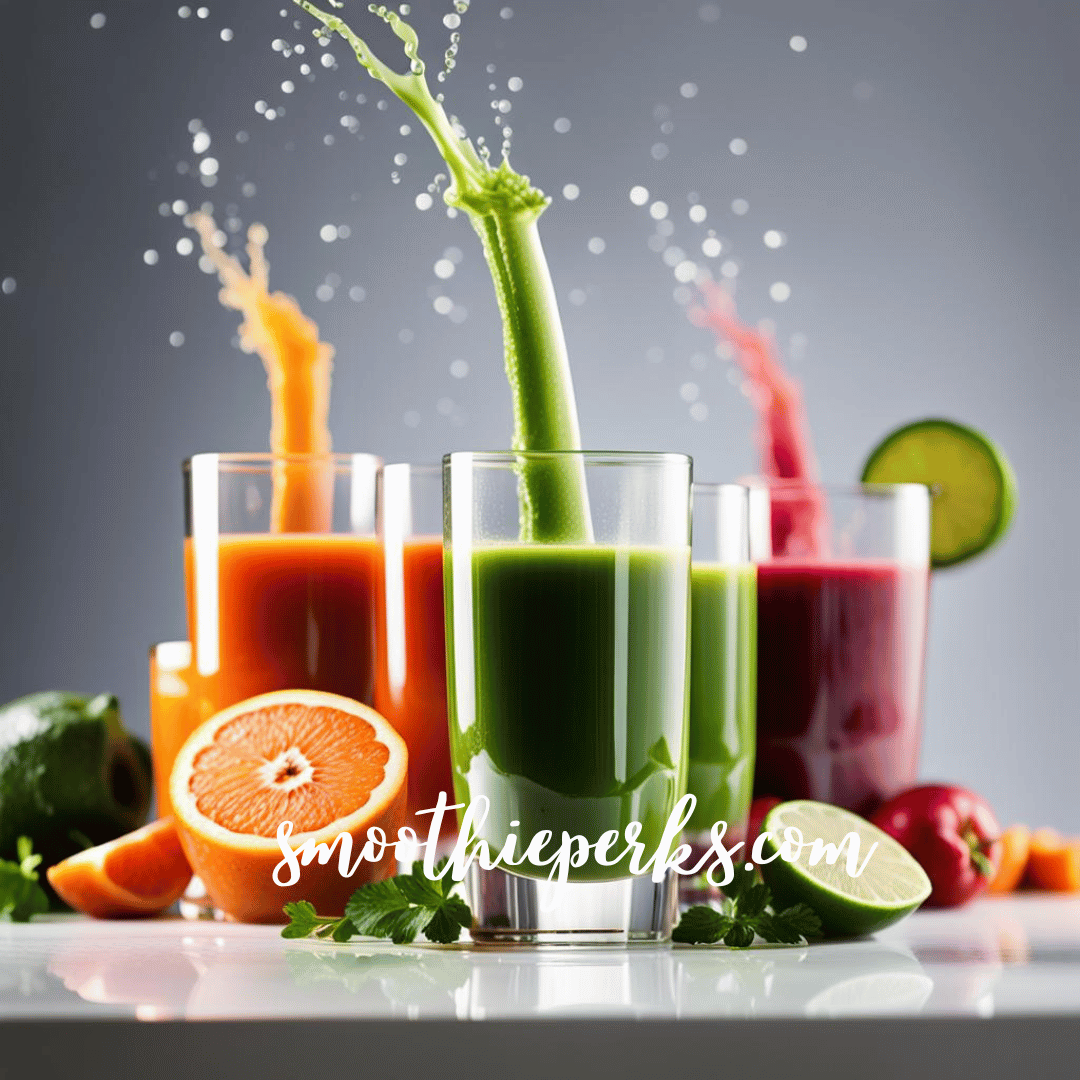Juicing is a popular method of consuming fruits and vegetables in liquid form, and it can offer various benefits, including the intake of essential minerals.
Minerals are important nutrients that play various roles in the body’s overall health and functioning. When you juice fruits and vegetables, you can obtain a concentrated source of these minerals.
Here are some of the benefits of juicing for minerals:
- Increased Mineral Intake: Juicing allows you to consume a higher quantity of fruits and vegetables than you might typically eat whole.
This means you can increase your intake of essential minerals, such as potassium, magnesium, calcium, and iron. - Easy Absorption: Juicing breaks down the cellular structure of fruits and vegetables, making the minerals more readily available for absorption.
This can be especially beneficial for individuals with digestive issues or those who struggle to digest raw or whole foods efficiently. - Variety of Minerals: Different fruits and vegetables contain various minerals, so by juicing a diverse range of produce, you can ensure you get a broad spectrum of essential minerals that support various bodily functions.
- Hydration: Juices are hydrating, and the water content in juices can help maintain proper mineral balance in the body. Proper hydration is crucial for the efficient transport and utilization of minerals.
- Alkalinity: Many green vegetables used in juicing, such as kale and spinach, are rich in minerals and can help promote an alkaline pH in the body.
This can support overall health and well-being. - Detoxification: Some minerals, like magnesium and potassium, play a role in detoxifying the body. Juicing can aid in the detox process by providing the minerals necessary for these functions.
- Dietary Variety: Juicing allows you to incorporate a wider variety of fruits and vegetables into your diet, which can be especially helpful if you have dietary restrictions or specific mineral deficiencies.
Important Note:
It’s important to note that while juicing offers many benefits for mineral intake, it’s not a replacement for a well-balanced diet.

Whole fruits and vegetables provide additional essential nutrients, such as fiber, that are often removed during the juicing process.
It’s also important to be mindful of the sugar content in fruit juices, as excessive consumption of fruit juice can lead to high sugar intake without the fiber to slow down sugar absorption.
It’s a good idea to consult with a healthcare professional or nutritionist to ensure your juicing routine aligns with your specific dietary and nutritional needs.
FAQs (Frequently Asked Questions)
- What minerals can I obtain from juicing?
- Juicing can provide essential minerals like potassium, magnesium, calcium, iron, and others found in various fruits and vegetables.
- Juicing can provide essential minerals like potassium, magnesium, calcium, iron, and others found in various fruits and vegetables.
- How does juicing enhance mineral absorption?
- Juicing breaks down the cellular structure of fruits and vegetables, making minerals more readily available for absorption by the body.
- Juicing breaks down the cellular structure of fruits and vegetables, making minerals more readily available for absorption by the body.
- Is it better to juice fruits or vegetables for minerals?
- Both fruits and vegetables provide minerals, so it’s beneficial to juice a combination of both for a diverse mineral intake. Green leafy vegetables are particularly rich sources of minerals.
- Both fruits and vegetables provide minerals, so it’s beneficial to juice a combination of both for a diverse mineral intake. Green leafy vegetables are particularly rich sources of minerals.
- Can juicing help with mineral deficiencies?
- Juicing can be a helpful addition to a diet to address certain mineral deficiencies, but it should not replace whole foods and dietary balance.
Consulting with a healthcare professional or nutritionist is recommended for specific deficiencies.
- Juicing can be a helpful addition to a diet to address certain mineral deficiencies, but it should not replace whole foods and dietary balance.
- Are there any downsides to juicing for minerals?
- Juicing can remove fiber, and some fruit juices may be high in natural sugars. It’s important to monitor your sugar intake and ensure that juicing complements a well-balanced diet.
- Juicing can remove fiber, and some fruit juices may be high in natural sugars. It’s important to monitor your sugar intake and ensure that juicing complements a well-balanced diet.
- How often should I incorporate juicing into my diet to benefit from minerals?
- The frequency of juicing can vary from person to person. Some people incorporate fresh juices into their daily routine, while others may do it a few times a week. It depends on your individual dietary goals and preferences.
- The frequency of juicing can vary from person to person. Some people incorporate fresh juices into their daily routine, while others may do it a few times a week. It depends on your individual dietary goals and preferences.
- What are the best combinations for juicing to maximize mineral intake?
- Combining a variety of fruits and vegetables, including leafy greens, carrots, beets, and citrus fruits, can create nutrient-dense juice with a wide range of minerals.
- Combining a variety of fruits and vegetables, including leafy greens, carrots, beets, and citrus fruits, can create nutrient-dense juice with a wide range of minerals.
- Is juicing a suitable method for children and the elderly to get more minerals?
- Juicing can be a good way for children and the elderly to increase their mineral intake, but it’s essential to consider individual dietary needs and consult with healthcare professionals when necessary.
- Juicing can be a good way for children and the elderly to increase their mineral intake, but it’s essential to consider individual dietary needs and consult with healthcare professionals when necessary.
- Is store-bought juice as beneficial for minerals as homemade juice?
- Homemade juice is often considered healthier because it is typically fresher and contains fewer additives.
- Store-bought juices may be processed and have added sugars and preservatives that can reduce their nutritional value.
- Can juicing help with mineral-related health conditions, such as anemia or bone health?
- Juicing can provide minerals that support overall health, but it should be considered as part of a broader dietary and medical approach to managing specific health conditions.
- Consulting with a healthcare provider is essential for such cases.
Remember that while juicing can offer many benefits, it’s not a replacement for a well-rounded diet that includes whole fruits and vegetables.
It’s important to maintain dietary balance and moderation in your juicing routine.
ⓘ Disclaimer:
Please note that the information provided in this blog post is for general informational purposes only and does not constitute professional advice. The author of this article is not an expert. It is important to consult with a qualified professional. The content of this blog post is based on the author’s personal experiences, research, and opinions. SmoothiePerks.com nor the author assumes no responsibility or liability for any consequences resulting from the use of this information. By reading this blog post, you acknowledge and accept that the information provided here is not a substitute for professional advice.
ⓘ Disclosure
Amazon Associates Program: smoothieperks.com is a participant in the Amazon Services LLC Associates Program, an affiliate advertising program designed to provide a means for sites to earn fees by advertising and linking to Amazon.com.
ⓘ Affiliate Disclaimer/Disclosure:
Please assume any links to 3rd party products are affiliate links for which I may receive a small payment from the vendor if you decide to sign up or purchase – at no cost to you.



